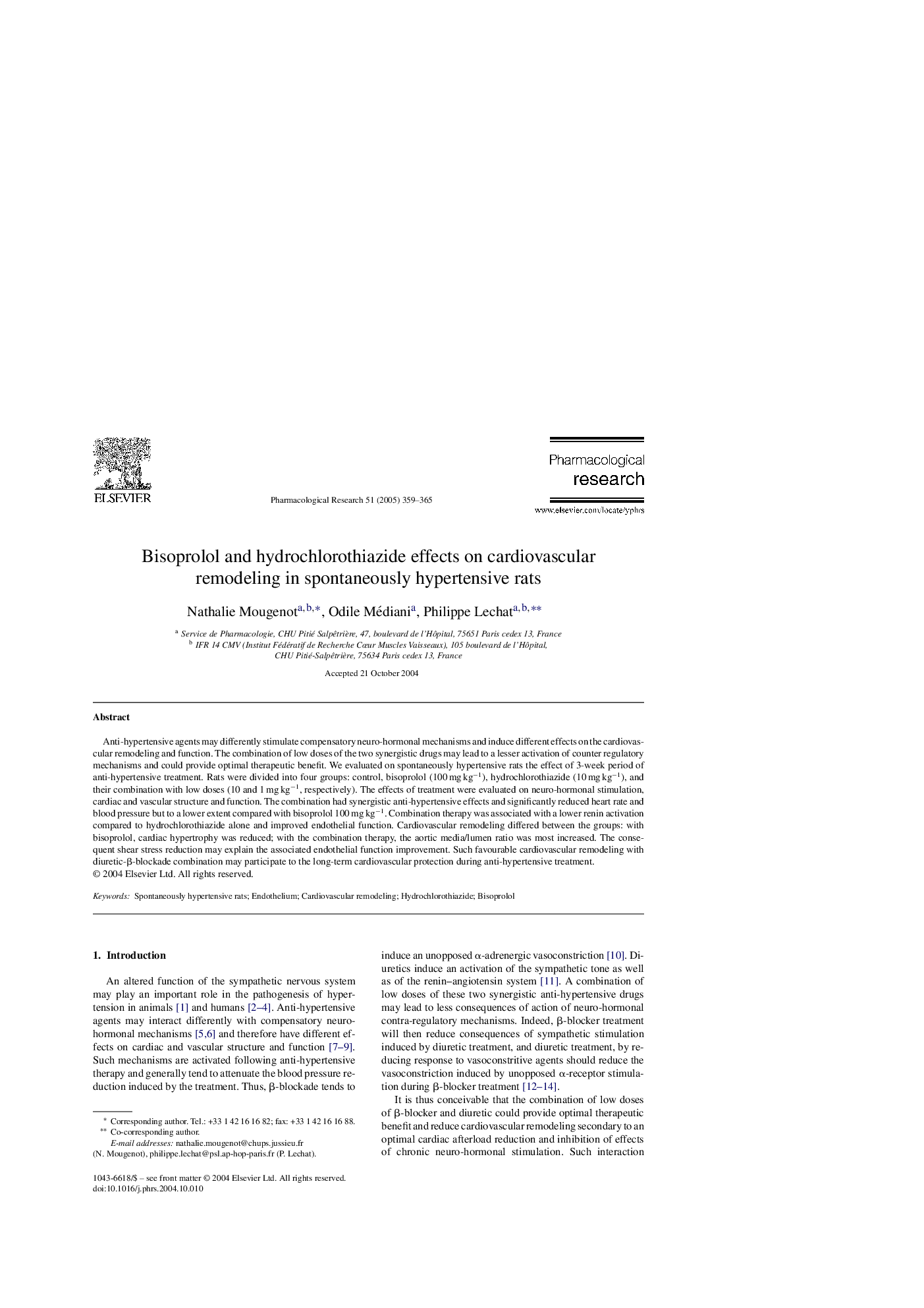| Article ID | Journal | Published Year | Pages | File Type |
|---|---|---|---|---|
| 9015262 | Pharmacological Research | 2005 | 7 Pages |
Abstract
Anti-hypertensive agents may differently stimulate compensatory neuro-hormonal mechanisms and induce different effects on the cardiovascular remodeling and function. The combination of low doses of the two synergistic drugs may lead to a lesser activation of counter regulatory mechanisms and could provide optimal therapeutic benefit. We evaluated on spontaneously hypertensive rats the effect of 3-week period of anti-hypertensive treatment. Rats were divided into four groups: control, bisoprolol (100 mg kgâ1), hydrochlorothiazide (10 mg kgâ1), and their combination with low doses (10 and 1 mg kgâ1, respectively). The effects of treatment were evaluated on neuro-hormonal stimulation, cardiac and vascular structure and function. The combination had synergistic anti-hypertensive effects and significantly reduced heart rate and blood pressure but to a lower extent compared with bisoprolol 100 mg kgâ1. Combination therapy was associated with a lower renin activation compared to hydrochlorothiazide alone and improved endothelial function. Cardiovascular remodeling differed between the groups: with bisoprolol, cardiac hypertrophy was reduced; with the combination therapy, the aortic media/lumen ratio was most increased. The consequent shear stress reduction may explain the associated endothelial function improvement. Such favourable cardiovascular remodeling with diuretic-β-blockade combination may participate to the long-term cardiovascular protection during anti-hypertensive treatment.
Keywords
Related Topics
Health Sciences
Pharmacology, Toxicology and Pharmaceutical Science
Pharmacology
Authors
Nathalie Mougenot, Odile Médiani, Philippe Lechat,
